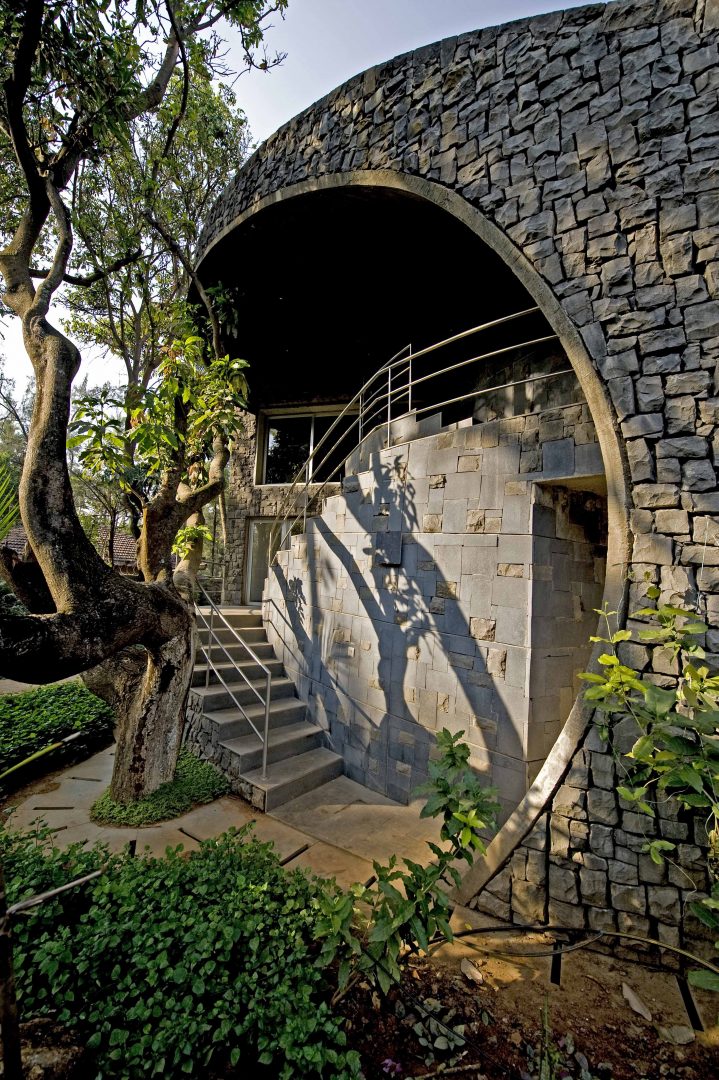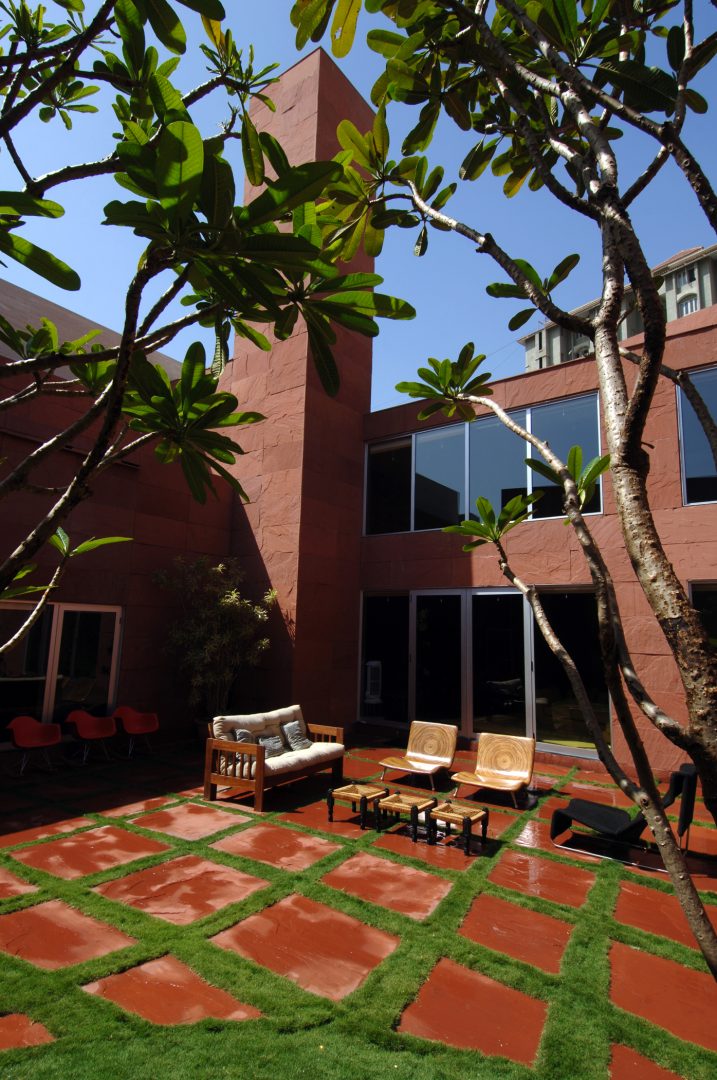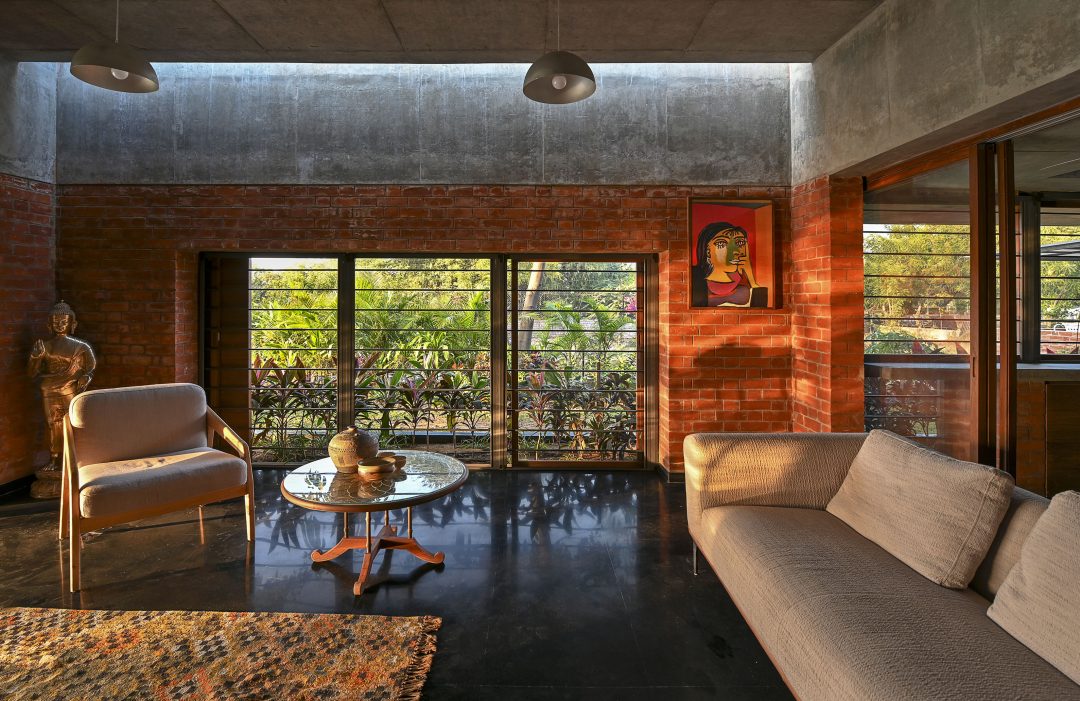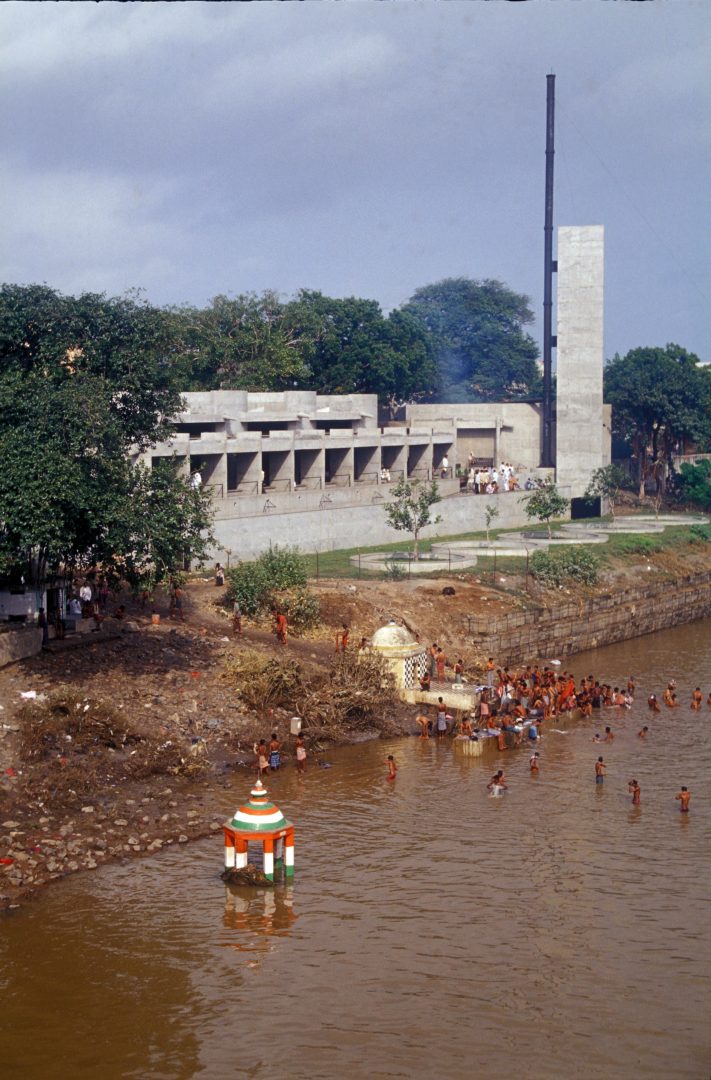A Punjabi, born in the deserts of Rajasthan, (un)settled in the Mecca of Architecture – Ahmedabad, Gurjit Singh Matharoo is the founder of Matharoo Associates, a path-breaking architectural firm dealing with scales of projects ranging from 100 sqft to 50 lakh sq ft. Breaking boundaries and norms, Gurjit’s work relies on tenets of natural light and ventilation, enhanced connection to nature, and the creation of a healthy and humane environment.
He is the third Indian architect after Pritzker Awardee Balkrishna Doshi and RIBA Gold Medallist Charles Correa to be inducted into the Premier International Fellowship of Royal Institute of British Architects (F’RIBA). Having won numerous national and international awards, Gurjit and his team focus on creating spaces for human betterment and engage themselves in the development of spatial design and extreme engineering.
With family in Rajasthan and training in Bhutan and Switzerland, what made you move and settle in Ahmedabad?
Yes! From the hills and the mountains to flat dry land! People are sometimes spoiled by choice and at times they choose to get spoilt. My schooling was in Ajmer and since Ahmedabad was close, I enrolled at CEPT to obtain my bachelor’s degree in architecture in 1989. Immediately after graduation, I had a brief stint in Switzerland under the aegis of mentor Luigi Snozzi. I came back to Ahmedabad following an offer from our beloved Dean Kurula Varkey, to teach at my alma mater, which made me stay here and establish my own firm ‘Matharoo Associates’. We began with a cycle, two drawing boards and a 9’ x 9’ cubicle overlooking the river Sabarmati. Looking back, it hasn’t turned out too bad for us.
In the Biennale project you focused on the structure as a main component such that a smaller space is perceived bigger. Can you elaborate on the project? What are your thoughts on the role and importance of structure in a building?
We were invited to the 2018 Venice Biennale themed ‘Freespace’ by Curators and Pritzker Winners Grafton Architects. Our installation was derived from a residence in India designed on a tight plot within a dense urban setting, making it imperative to use internal courtyards and techniques that would make spaces appear much larger and playful, than their mere functional footprint would allow. The structural members are employed beyond staid load-bearing members, and they cut, fold and bend into abstract planes to dissolve thresholds, connect inside-outside into one and create delight.
In all our projects the structural members are integrated with the architectural design to avoid unsightly beams and other elements that require concealment later using claddings, false-ceilings or other façade finishes. We design such that the structure itself becomes the building envelope, and is optimized to its maximum capacity. As a bonus, it reduces the cost of the building considerably.
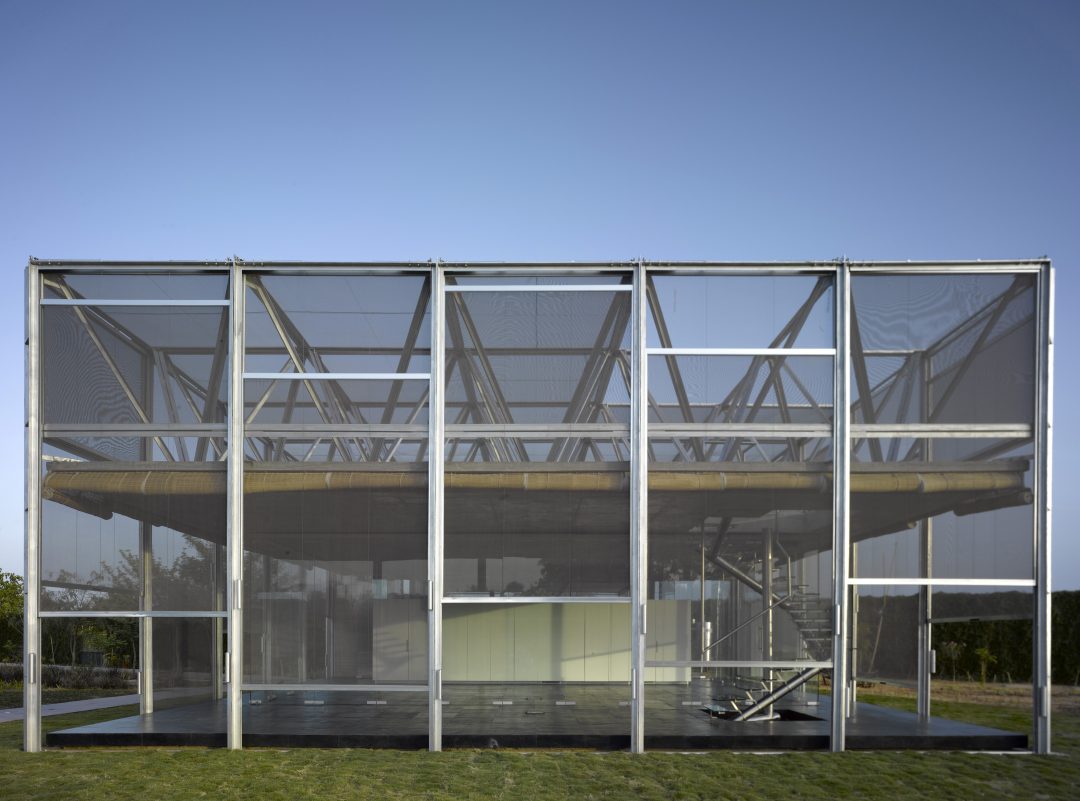
Winner of the International Architecture Award in 2011 by Chicago Athenaeum, the ‘Net House’ retreat in Ahmedabad allows for 360 degree views of the landscape. Enveloped in net, glass and blinds, it allows for varying degrees of open-ness required by inhabitants. © Edmund Sumner
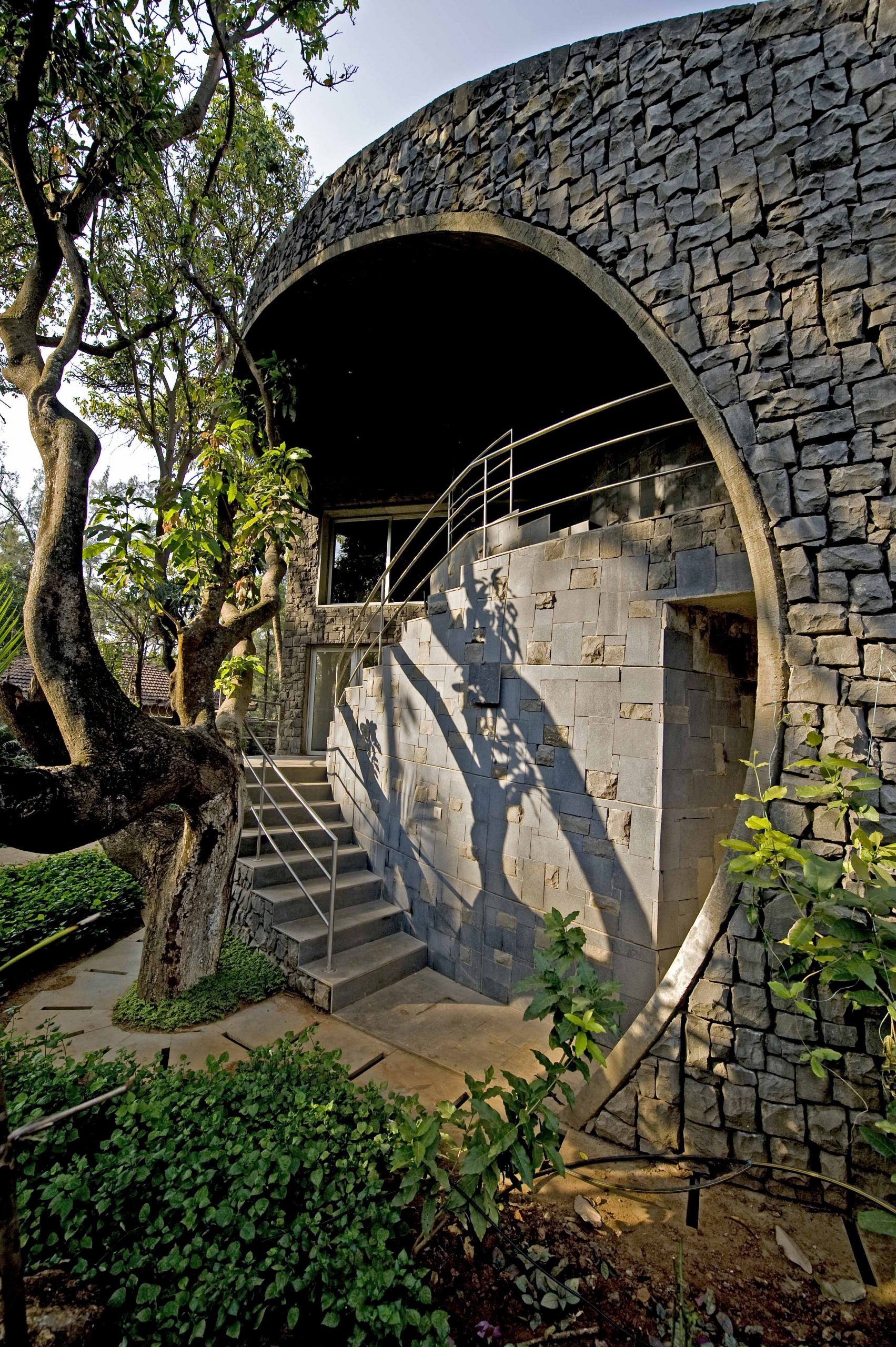
A retreat in Raigad that uses local basalt masonry for construction. © Dinesh Mehta 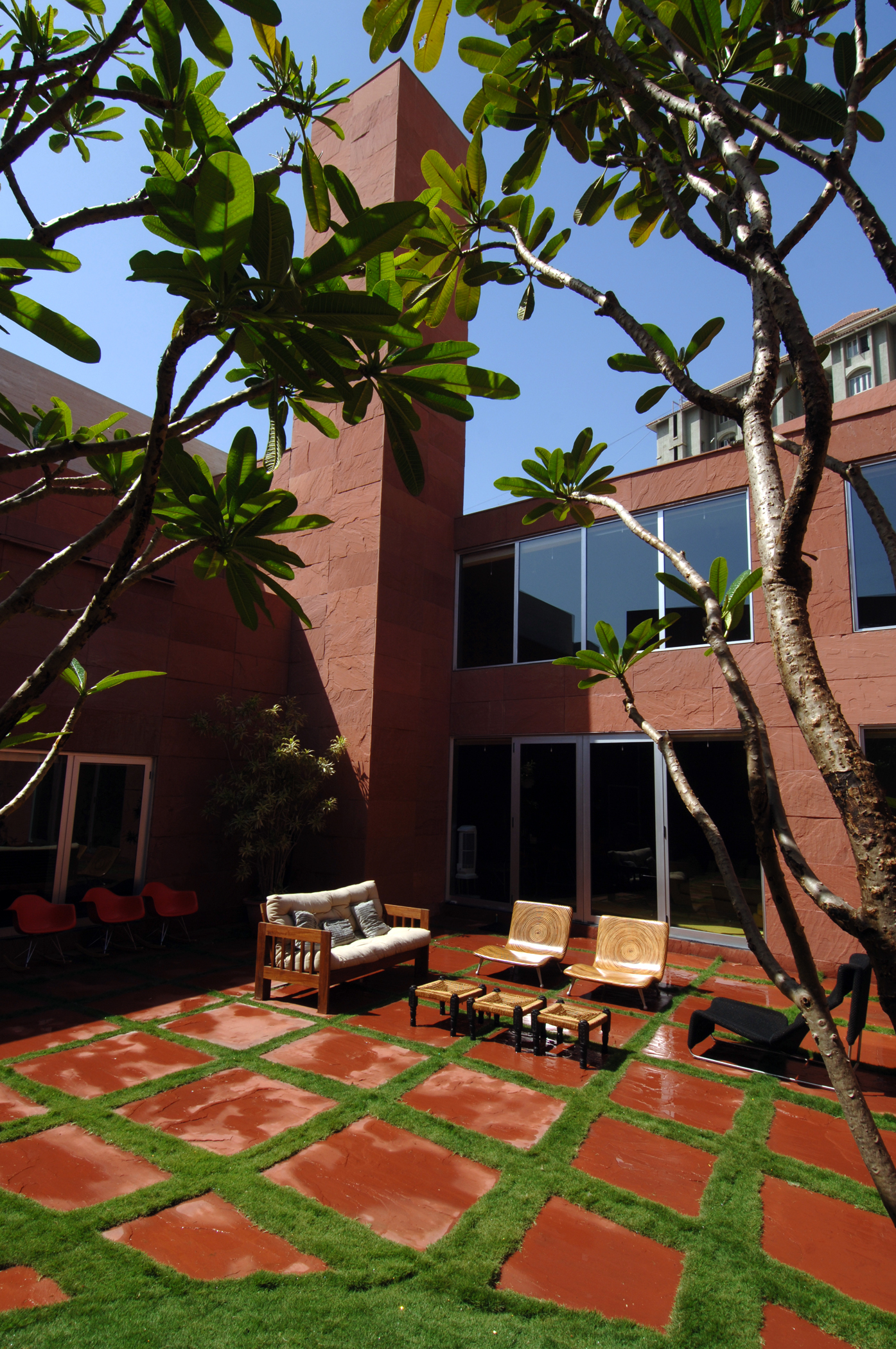
Housing with the Warped Court, Surat. The open centre allows for a private cocoon, cut from the urban context of the surrounding. © Joginder Singh
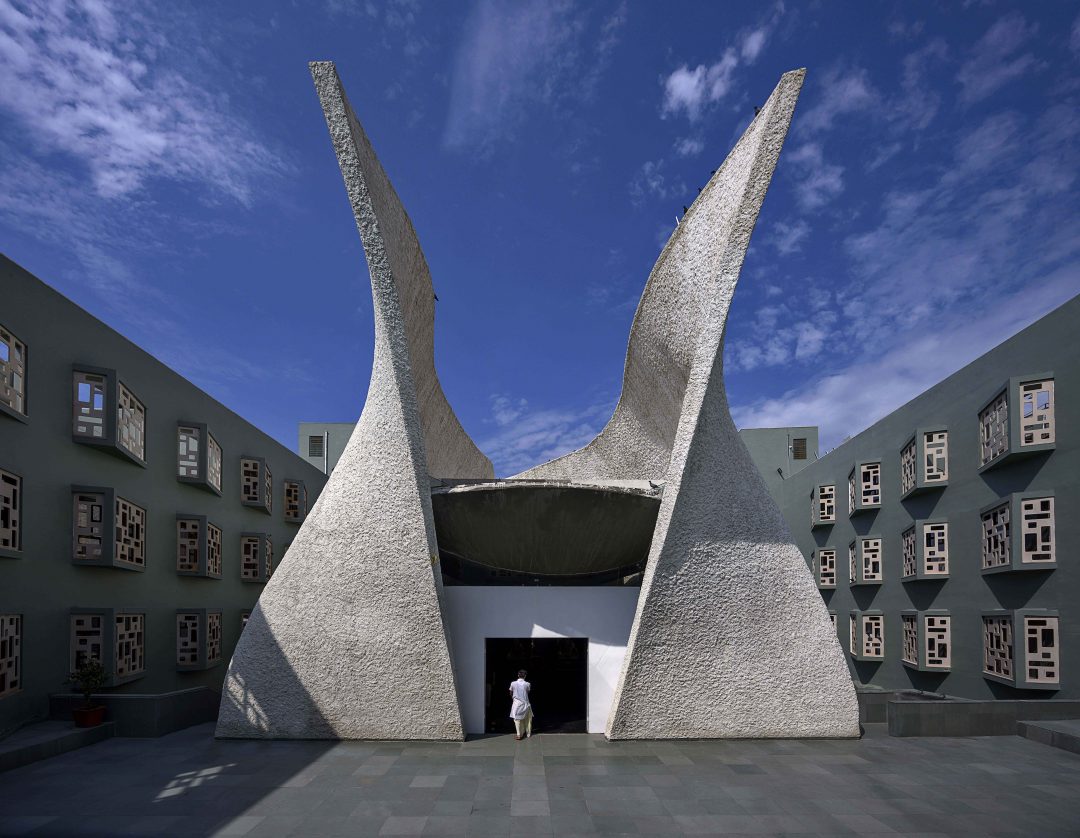
In Ajmer, the temple which is square in plan warps into a sinusoidal volume signifying the open interpretation of religion. It is surrounded by accommodation for pilgrims. © Dinesh Mehta
In all our projects the structural members are integrated with the architectural design to avoid unsightly beams and other elements that require concealment later using claddings, false-ceilings or other façade finishes.
How did competitions benefit you as an architect and as a firm?
Competitions are forums where one can express freely and put their nascent ideas forth. Our practice was established in a city where we had no previous background, hence competitions became the only way of acquiring projects. While a number of competitions we won such as the ‘Haria Club and Resort’, Vapi, ‘Jain Vishwa Bharati University’ and the ‘Offices of the Gujarat Municipal Finance Board’, Gandhinagar, did not get built, the ‘Prathama Blood Centre’, Ahmedabad and ‘Ashwinikumar Crematorium’, Surat got constructed. This marked the beginning of our foray into public and institutional projects, and we often call them our ‘life-and-death’ ventures.
The blood centre was designed as a lounge for donors and not a mere medical facility building and the crematorium a large public place, which had to be constructed while the cremations continued through the construction process. This added a challenge to already complex mechanisms – blood flow and ritualistic incorporations respectively. Both these projects won national and international awards and emerged as a testimony that we met all challenges successfully.

Prathama Blood Centre, Ahmedabad. The Sculptural forms employ curiosity to invite the viewer. Nominated for the Aga Khan Awards 2007. © Chandan Suravarapu
The recently completed corporate headquarters for CREDAI (Confederation of Real Estate Developers Association of India) in Ahmedabad was also won through an invited competition. The brief intended to contain workspaces and an intent to bridge the gap between the Real Estate developers and the society at large. In order to fulfil the requirement of being a public space for exhibitions and events, the giant walls of the 3-storey building slide and pivot out to render the otherwise closed building entirely open to the public. This duality of function, for the price of one, is also an important step in optimisation of costs.
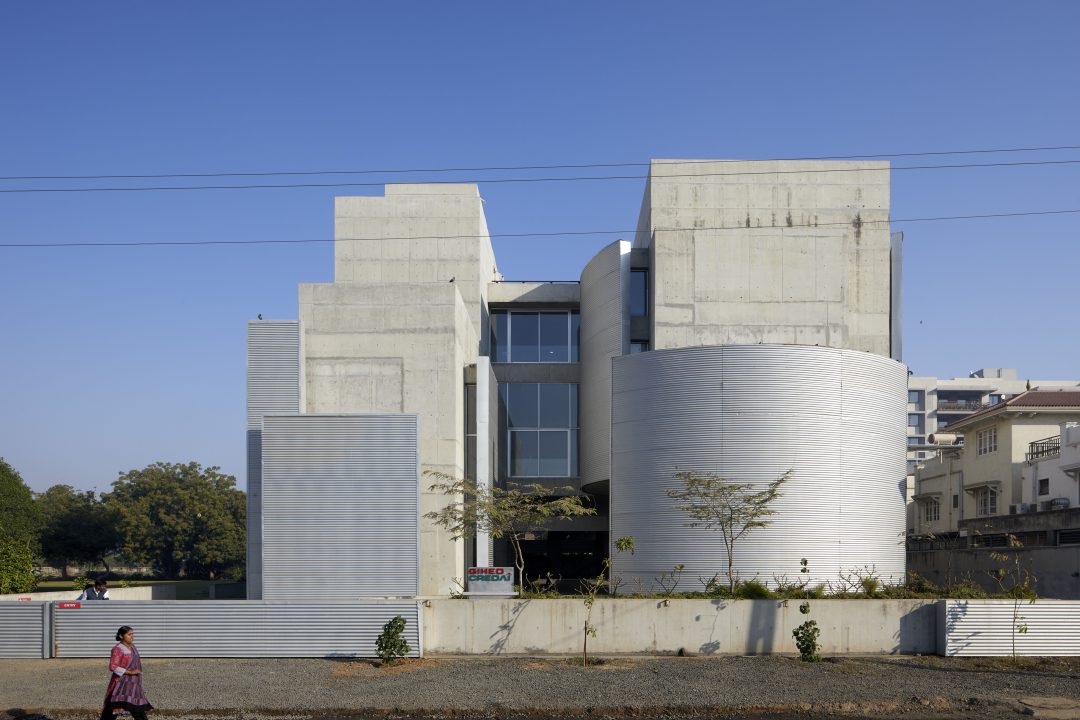
Headquarters for CREDAI (Confederation of Real Estate Developers Association of India), Ahmedabad. © Edmund Sumner. 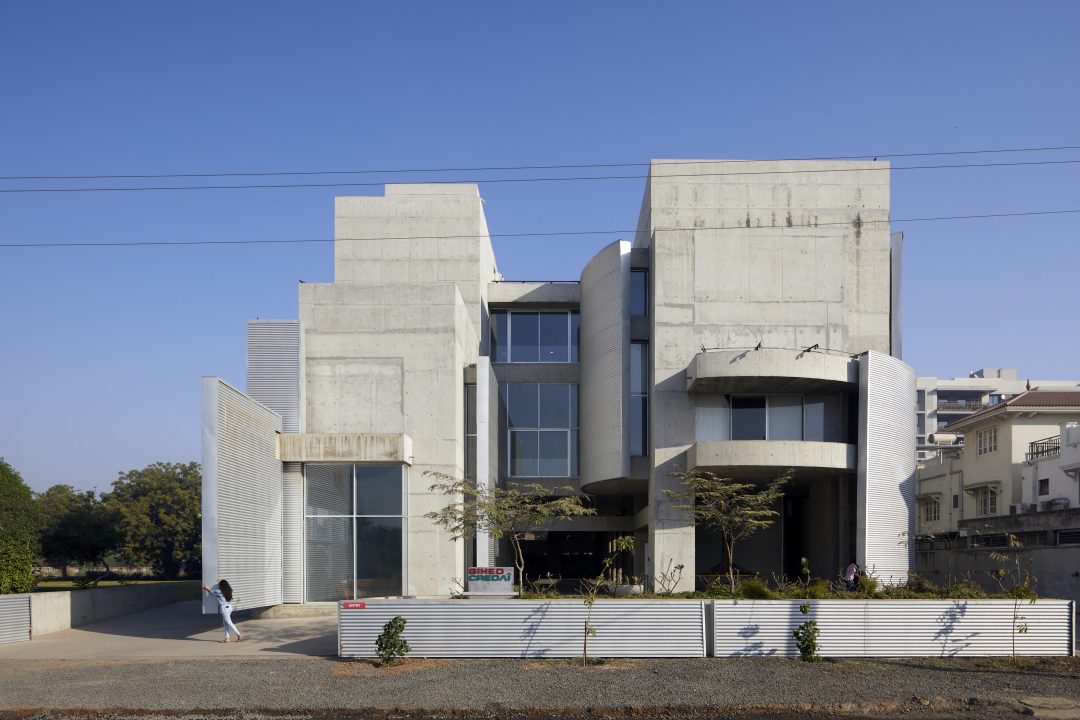
The giant walls slide and pivot to connect the street to the inside. It forms a public interface during exhibitions, conferences and other events. © Edmund Sumner.
The design of Mobile blood donation vans ‘Cattiva’ and all its equipment and chairs require a detailed application. Can you elaborate on the same?
Cattiva was a socially driven project where the team intended changing the prevalent norm of ‘Blood only through Replacement’ to ‘Voluntary Blood Donations’. Easier said than done, as it required healthy donors to be attracted to the idea of donating blood on a regular basis, that a regular ambulance type donor van could never achieve.
The van derives its name from the term ‘Cattiva’ in Italian, and translates to ‘A mean woman’ – who lures her prey and sucks them dry (pun intended). Automobile design is my hobby, I enjoy resolving all technicalities and hardships that come in the way of a well packaged functional and sensuous solution. In the case of Cattiva, it serves a major social cause.
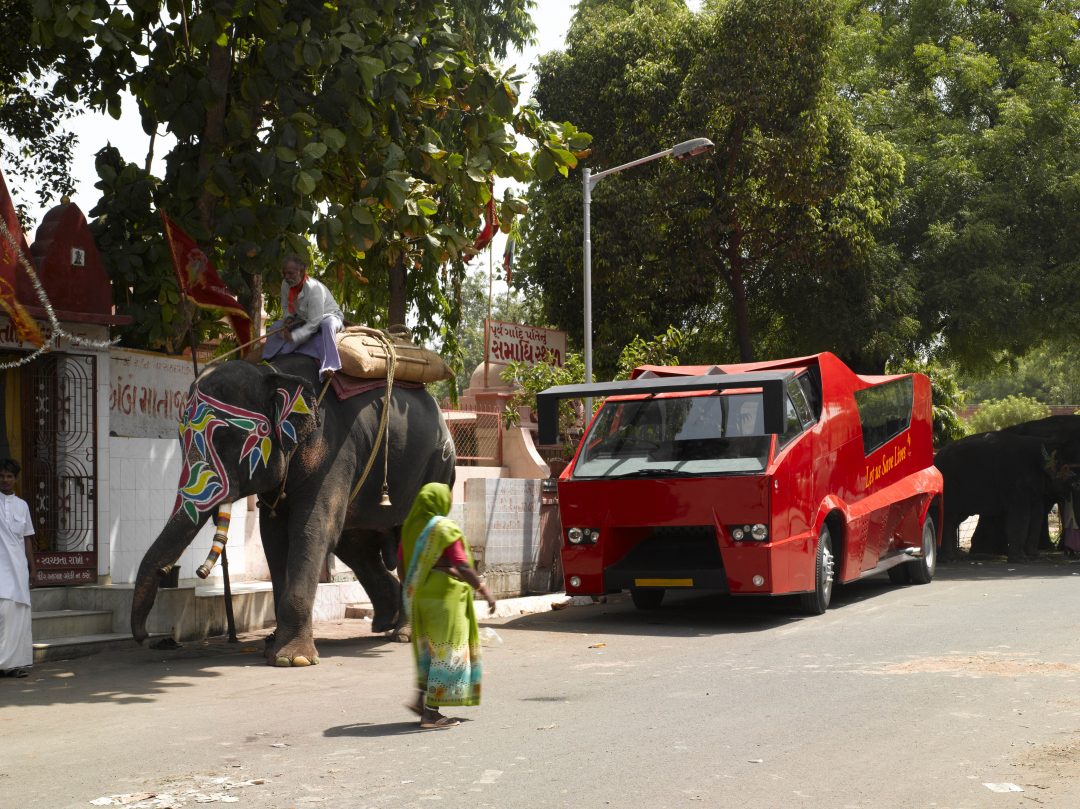
An extension of the centre, the ‘Cattiva’ mobile blood collection van. © Edmund Sumner.
What are the future trajectories in terms of upcoming projects, research undertaken and initiatives taken?
Currently a 35-acre township with over 3500 units is being built on a lakefront in Hyderabad, under the aegis of a government initiative PMAY (Pradhan Mantri Awas Yojana) that benefits the buyer and the builder. A commercially driven project has extreme constraints to maximize areas, minimize costs and keep it within the affordable sections. Yet all spaces within the 30, 45 and 60 sqm units are naturally lit and cross-ventilated with a generous living-dining space that terminates in a mammoth balcony with either lake or garden views, maximizing provisions and enhancing the quality of life. Aside from social spaces created high up at various levels, the scheme includes a Mall, a place for Conventions, Cinema theatres and other recreational facilities, not to mention a 5 acre forested area that all can be part of.
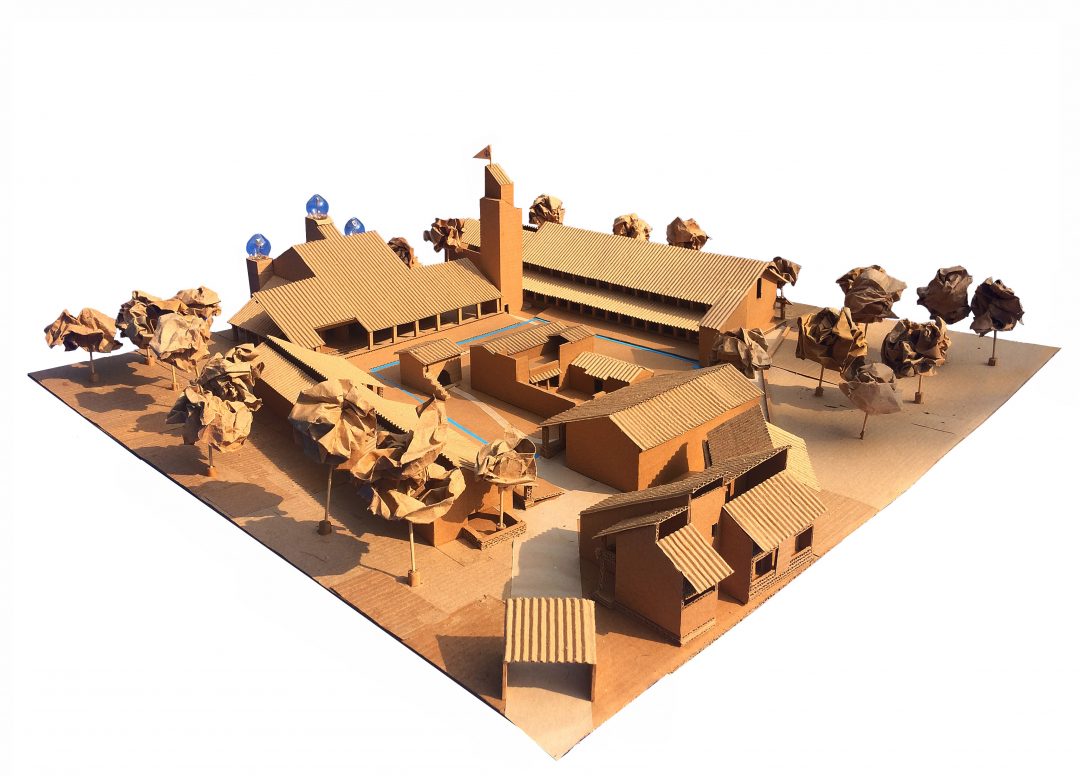
Upcoming UNESCO Sikh Heritage Centre in Kutch. With the conservation of the existing structure, a new complex with a Museum, accommodation and Langar hall is being constructed. 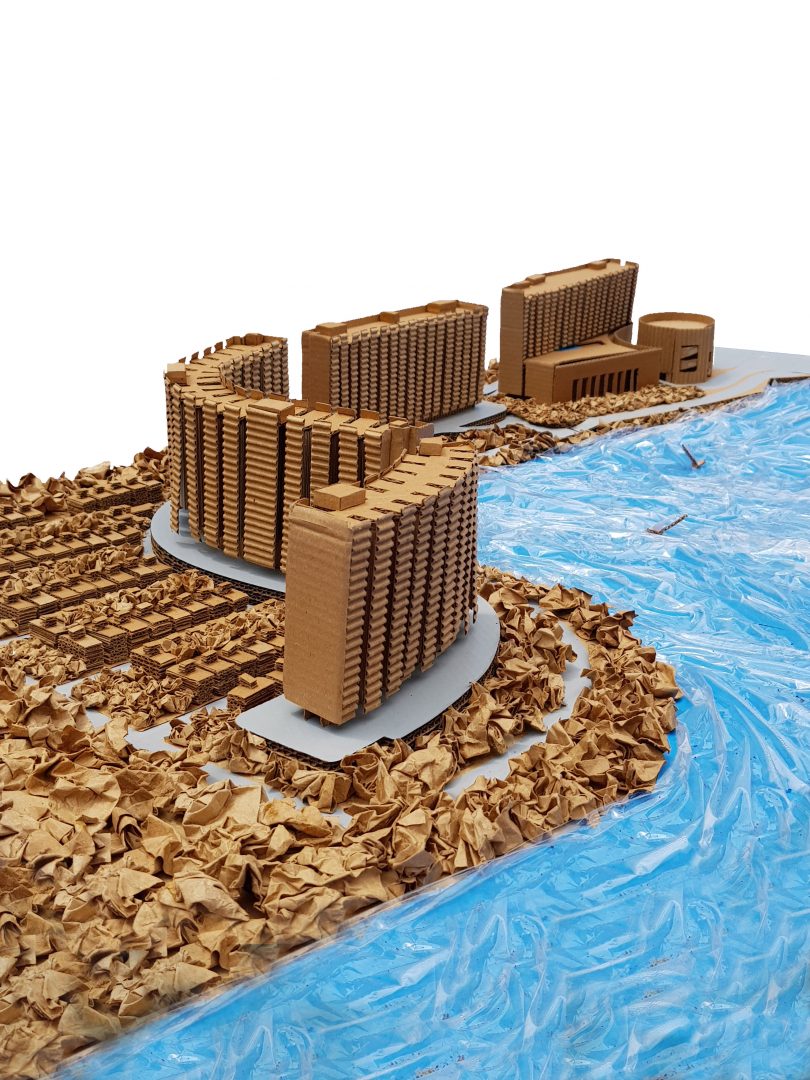
Upcoming Multi-use Lakefront Development in Hyderabad, includes 3500 housing units along with a mall, multiplex and 5acre forested area.
Also in progress are two Gurudwaras in Lakhpat (Kutch) and Dwarka (Saurashtra) financed by the Gujarat state government. It includes preservation of monuments, and a heritage center consisting of the gurdwara (Sikh shrine), an interpretation center, Sarai (accommodation complex) and Langar halls (Community Kitchen). Being projects of high heritage value (Lakhpat is a UNESCO protected monument) extreme care is taken to build the same with locally available materials and techniques in the most sustainable of ways.
A recent Monograph ‘ Matharoo Associates, Architectural Practice in India’ by Philip Jodido, Lausanne and published by ‘images Publishing’, Melbourne showcases the journey of Matharoo Associates with project archives, drawings and writings. You can learn more about it here.
Matharoo Associates
Visit: http://matharooassociates.com/
E-mail: studio@matharooassociates.com
Contact: +91 – 9879543504 – 05
Biltrax Construction Data is tracking 11000+ projects on its technology platform for its Clients. Email contact@biltrax.com to subscribe and generate business leads.





